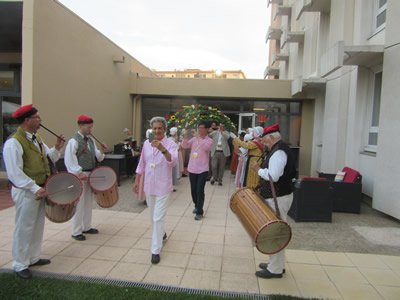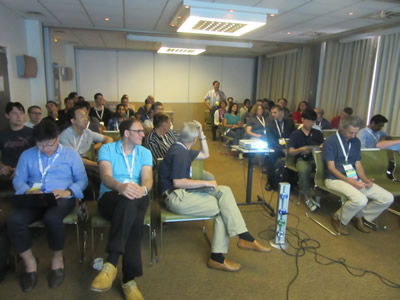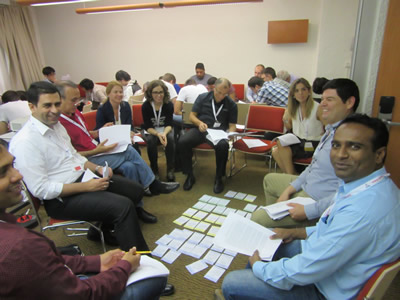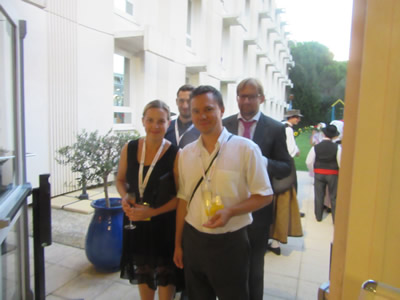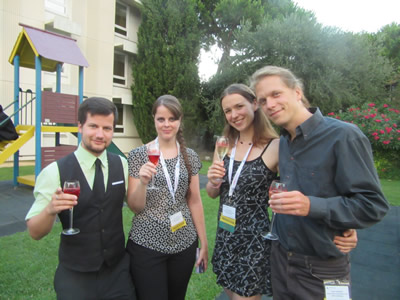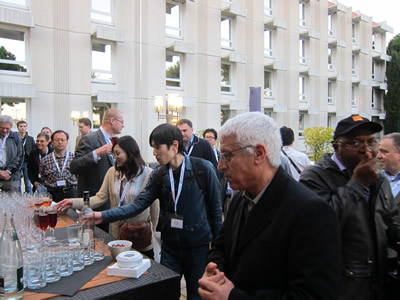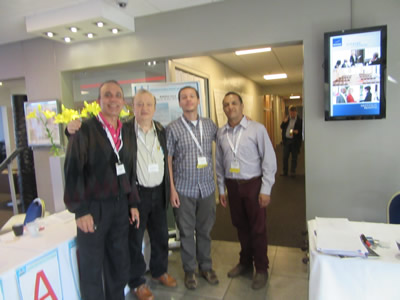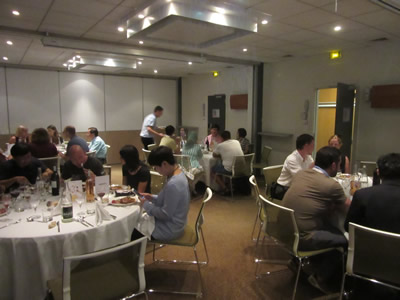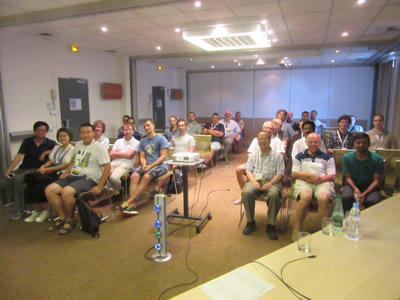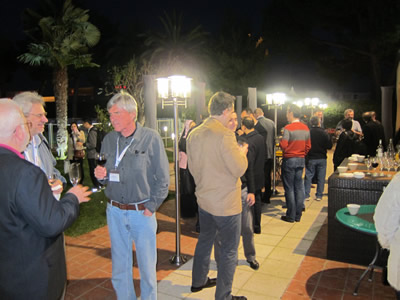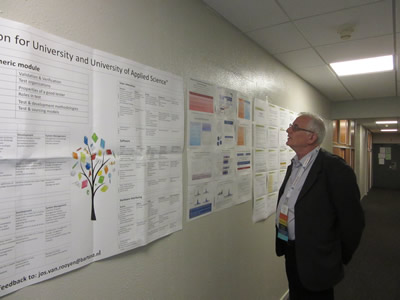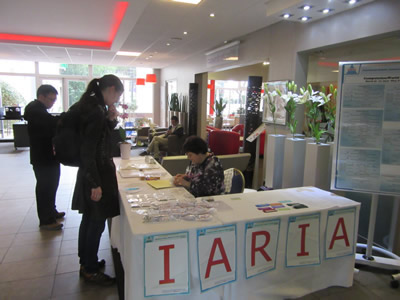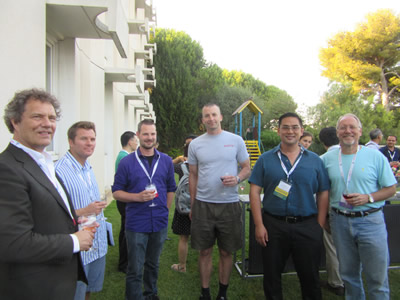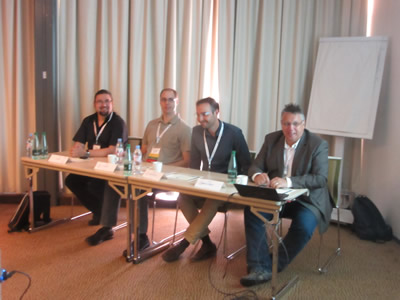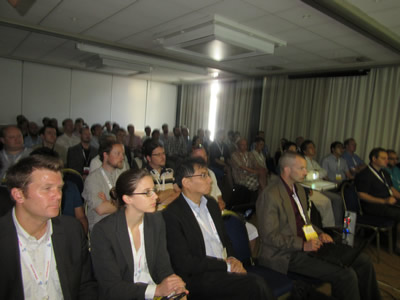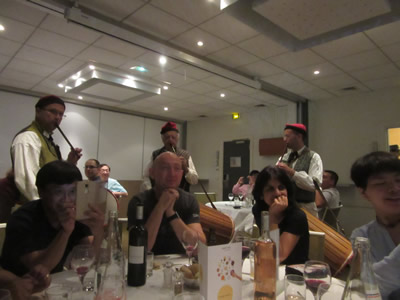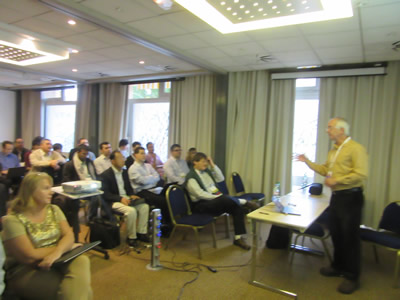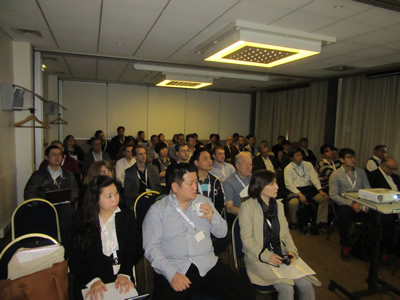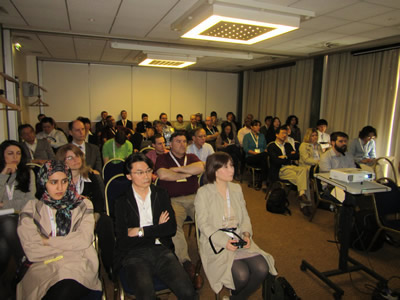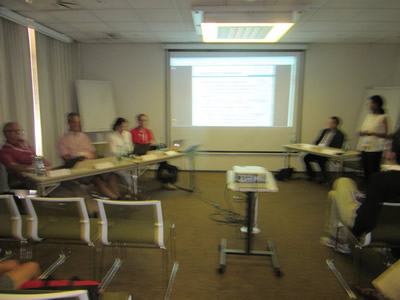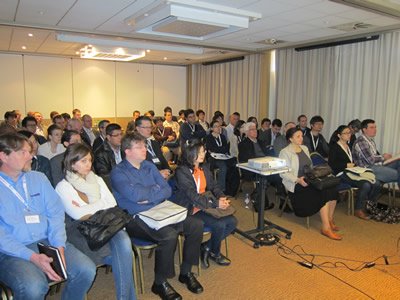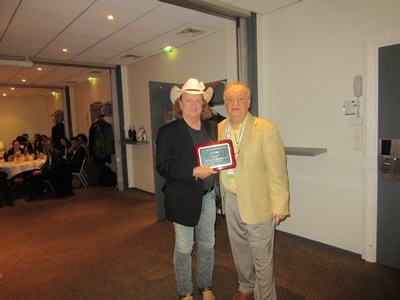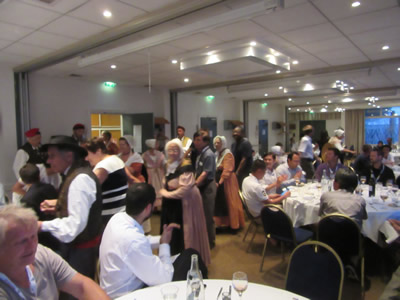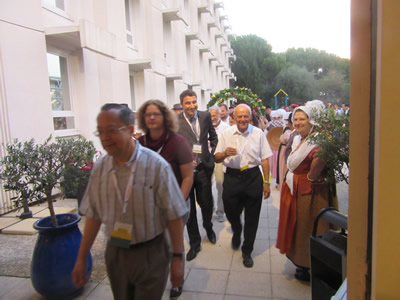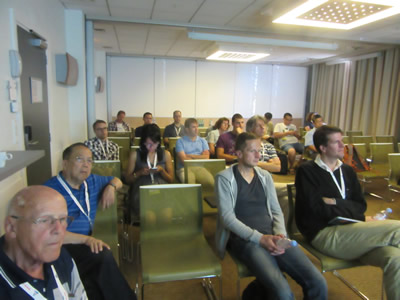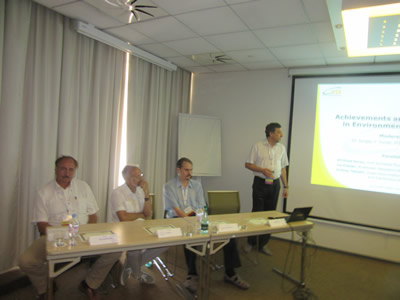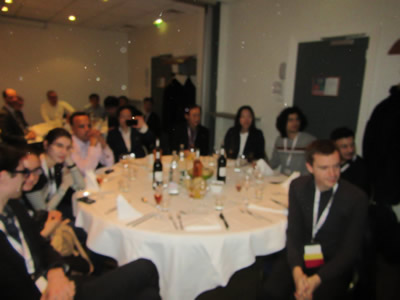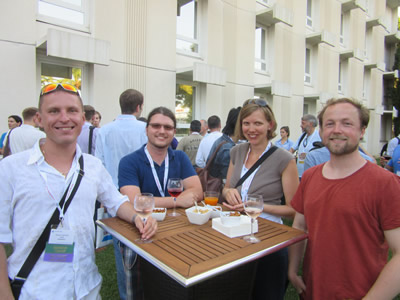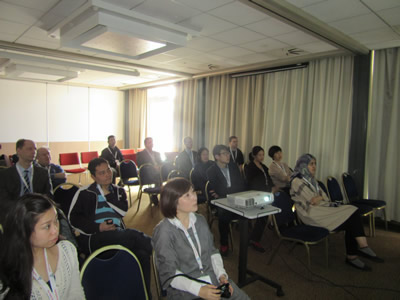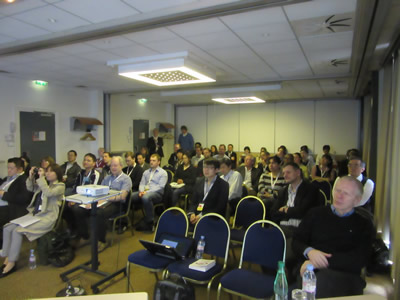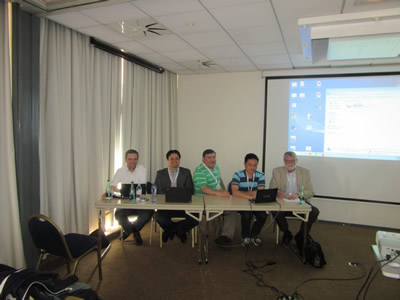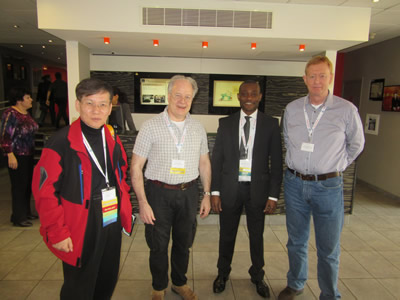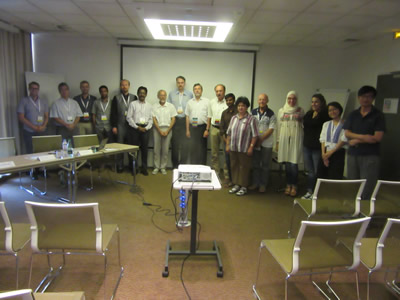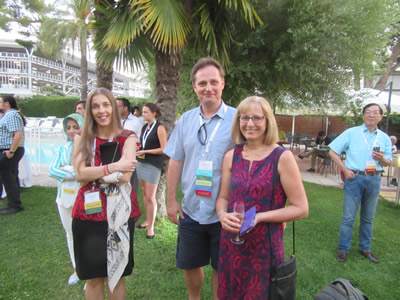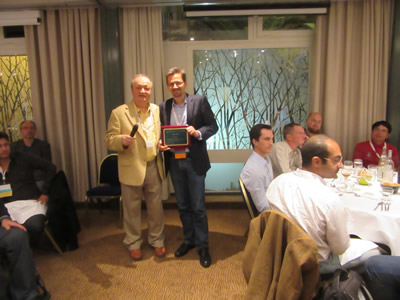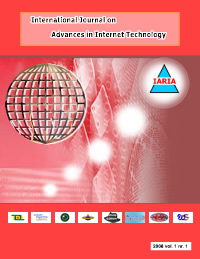ICDS 2025 - The Nineteenth International Conference on Digital Society
May 18, 2025 - May 22, 2025
ICDS 2025
Onsite and Online Options: In order to accommodate various situations, we are offering the option for either physical presence or virtual participation (pdf slides or pre-recorded videos).
ISSN: 2308-3956
ISBN: 978-1-68558-267-8
ICDS 2025 is colocated with the following events as part of DigitalWorld 2025 Congress:
- ICDS 2025, The Nineteenth International Conference on Digital Society
- ACHI 2025, The Eighteenth International Conference on Advances in Computer-Human Interactions
- GEOProcessing 2025, The Seventeenth International Conference on Advanced Geographic Information Systems, Applications, and Services
- eTELEMED 2025, The Seventeenth International Conference on eHealth, Telemedicine, and Social Medicine
- eLmL 2025, The Seventeenth International Conference on Mobile, Hybrid, and On-line Learning
- eKNOW 2025, The Seventeenth International Conference on Information, Process, and Knowledge Management
- ALLSENSORS 2025, The Tenth International Conference on Advances in Sensors, Actuators, Metering and Sensing
- SMART ACCESSIBILITY 2025, The Tenth International Conference on Universal Accessibility in the Internet of Things and Smart Environments
ICDS 2025 Steering Committee
|
 |
Lasse Berntzen
University of South-Eastern Norway
Norway
|
|
 |
Claus-Peter Rückemann
Universität Münster / DIMF / Leibniz Universität Hannover, Germany
|
|
 |
Theo Lynn
Irish Institute of Digital Business, Dublin City University
Ireland
|
|

(c) THB / Heike Schulze |
Olga Levina
Technische Hochschule Brandenburg
Germany
|
|
 |
Claudia Heß
IU Internationale Hochschule
Germany
|
|
|
|
|
 |
Lasse Berntzen
University of South-Eastern Norway
Norway
|
|
 |
Claus-Peter Rückemann
Universität Münster / DIMF / Leibniz Universität Hannover, Germany
|
|
 |
Theo Lynn
Irish Institute of Digital Business, Dublin City University
Ireland
|
|

(c) THB / Heike Schulze |
Olga Levina
Technische Hochschule Brandenburg
Germany
|
|
 |
Claudia Heß
IU Internationale Hochschule
Germany
|
ICDS 2025 conference tracks:
Trends in government-related actions
Smart Cities; Smart Nations; Citizen-centric projects and decisions; Citizen participation in digital government; Usable climate and awareness information; Models for public services; Social media; Social tweeting; ePetitions; eJustice reforms; eParticipation; eGovernment 4.0; Collaborative governance; Digital era governance; Co-creation and co-production of public services; Smart urbanity; e-Ticketing systems; Global and local sustainability; Digital economic strategies; Cybersecurity portals; Transparency and public participation; Metrics for local government responsiveness; Public-private partnerships; Free-access digital libraries; Facebook privacy; Censorship; Web-scale eGovernment recommendation services; Novelty versus social impact; Demographic estimates for urban planners; Citizen-centric maps adaptation (floods, evacuation, emergency, parks, seismic areas, public spaces, etc.); Time-dependent citizen-centric facilities (ambulance spots, firefight stations, etc.); eGovernment solutions and political polarization
Trends in IT related governmental/public services
Citizen-centric government IT planning; Smart Cities High Technology; Internet of Things (IOT) Intelligent Cities; Urban computing; Traffic/congestion prediction systems (cars, pedestrians, bicyclists); Online ride-sharing systems; Intelligent transport urban systems; Monitoring urban resources (hospitals, schools, water, gas, electricity, parks, etc.); Digital health systems; Smart wearable and portable devices; Smartphones and the digital divide; Crowd mobility metrics and patterns; Elderly-oriented services; Big data for digital government; Open government data; Government datasets; Anonymity and de-anonymization; Privacy in medical tests and personalized medicine; Systems and assistive technologies; Real-time platforms for community communications (portals, radio and TV local stations, etc.); IT systems to advertize risks and uncertainty; IT citizen-centric for noise and pollution; Personalized route planning systems; Ambient street displays; IT ethics in online environments
Digital society and robots
Ethics in autonomous and intelligent systems; Interactive robots and interactive humans-robots; City service robots; Integrative social robotics; Social practices for social robotics; Post-robotics; Regulations on Robotics; Robotic legal-decisions; Assistive robotics; Android robotics; Robophilosophy; Moral robots; Military robotics; Cross-Cultural and Trans-disciplinary robotics
eGovernment services in the context of digital society
e-Government strategies; Citizen-Government eModels; Special applications and services of eGovernment; ePayment, eTax administration; eVoting, eCitizen identity cards; Social e-financial projects; Educating eHealth; Homeland security and public records; eGarbage collection of private records; Metrics for eGovernment projects and services; Benefits of eGovernment; On-line social networking; Financing e-Government; e-Governance; From e-Government to m-Government (mobile-Government); e-Environment
Digital accessibility
Design approaches, techniques, and tools to support Web accessibility; Best practices for evaluation, testing reviews and repair techniques; Accessibility across the entire system lifecycle; Accessibility within e-organizations: good practices and experiences; Industry and research collaboration, learning from practice, and technology transfer; Mobile Internet-Web Accessibility; Developing user interfaces for different devices; Dealing with different interaction modalities; Web authoring guidelines and tools; Accessibility and other core areas related to the Web user experience; (UX): Usability, Findability, Valuability, Credibility, etc.; Innovations in assistive technologies for the Web; Accessible graphic formats and tools for their creation; Adaptive Web accessibility; Accessibility and information architecture; Universally accessible graphical design approaches; User Profiling; Cognitive and behavioral psychology of end user experiences and scenarios
Citizen-centric disruptive and enabling technologies
Wireless and user mobility; Ubiquitous systems; On-line interactions; User-centric services, applications, eLearning; High speed electronics, storage, networking eHealth and nano medicine; Biological informatics and computing
Internet and Web services
IP-based networking and applications; Best effort and QoS/SLA; WWW, Web Services, Semantic Web; eLearning and mobile learning; Service-oriented platforms; Peer-to-Peer Systems and applications; Web-advertising and Web-publishing Multimedia and Webcasting
eCommerce and eBusiness
On-line shopping frameworks; Trust, privacy, security; Internet macro and micro payment systems; On-line banking; Agent-based e-commerce; eBusiness models and costs; eBusiness applications; Infrastructure for e-Commerce; Mobile commerce
Citizen-oriented digital evidence
Processing citizen-oriented electronic evidence (acquisition, preservation, analysis); Multimedia documents ( X-rays, radiology, biometrics, and surveillance data); Medical digital forensics; Classic and 3D medical documents; DNA profiling; Genetic and biocomputing; Forensic and data mining; Predictive data modeling; Biological data and privacy; Digital forensics tools
Consumer-oriented devices and services
Mobile TV and IPTV; Consumer-oriented e-commerce; Smart and digital homes; Wearable devices; Smart consumer appliances; Speech enable appliances; Consumer accessibility appliances and services
Intelligent computation
Theories of agency and autonomy; Intelligent techniques, logics, and systems; Evolutionary computation; Autonomic and autonomous systems; Autonomic computing and autonomic networking; Ubiquitous and ambient computing; Computational economics; Protecting and preventing computing; High performance computing; Service-oriented computing; Multi-agent based computing; Cluster computing and performance; Artificial intelligence
Networking and telecommunications
Networking and telecommunications technologies; Wireless, mobility and multimedia systems; Internet and Web Services technologies; Systems performance, security, and high availability; Communications protocols (SIP/H323/MPLS/IP); Specialized networks (GRID/P2P/Overlay/Ad hoc/Sensor); Advanced services (VoIP/IPTV/Video-on-Demand); Advanced paradigms (SOA/WS/on-demand)
eDefense for security and protection
Knowledge for global defense; Security in network, systems, and applications; Trust, privacy, and safeness; Business continuity and availability; Cryptography and algorithms encryption; Rapid Internet attacks and network; Applications and network vulnerabilities
Intrusion Prevention and Detection Systems
Reducing false positives and improving true positives; Automating IPDS responses; Innovative signature writing and processing; Improving IPDS usability; Successful approaches to Anomaly IPDS (Statistical; Fuzzy logic; Bayesian; Neural networks, etc.); Inventive behavioural based IPDS methods; Inventive host based IPDS methods; Improving the performance of IPDS; Multiple sensor IPDS; Tuning IPDS; The business cases supporting IPDS; Network traffic normalization techniques; Cost/Benefit of IPDS; Combining IPDS with other hardware e.g. firewalls, routers etc.; Inventive methods of using IPDS to counter specific attack types (Web attacks; Buffer overflow attacks; Brute force attacks, etc.); Comparisons of different IPDS mechanisms; Combining multiple IPDS approaches
Enforced citizen-centric paradigms
Data-centered information systems; User-centric information systems; Pervasive and ubiquitous systems; Mobile learning and communications; Open and distance education systems
Web accessibility
Design approaches, techniques, and tools to support Web accessibility; Best practices for evaluation, testing reviews and repair techniques; Accessibility across the entire system lifecycle; Accessibility within e-organizations: good practices and experiences; Industry and research collaboration, learning from practice, and technology transfer; Mobile Internet-Web Accessibility; Developing user interfaces for different devices; Dealing with different interaction modalities; Web authoring guidelines and tools; Accessibility and other core areas related to the Web user experience; (UX): Usability, Findability, Valuability, Credibility, etc.; Innovations in assistive technologies for the Web; Accessible graphic formats and tools for their creation; Adaptive Web accessibility; Accessibility and information architecture; Universally accessible graphical design approaches; User Profiling; Cognitive and behavioral psychology of end user experiences and scenarios
Computational advertising
Computational linguistics; Linguistic signal processing; Statistical properties of community structures; Semantic contextual advertising; Relevance and click feedback; Searching dense and isolated submarkets; Latent factor models; Semantic relatedness; Personalized ad delivery; Processing over query-dependent functions; Inverse document frequency; Query-biased summarization; Pseudo-relevance feedback; Classification of rare queries; Page ranking
Management and control
Digital telecommunications management; Control and monitoring systems; Measurement and management systems; Human/Machine interface and man-in-the-loop control; Energy and power systems control; Self-monitoring, self-diagnosing, self-management systems
Digital analysis and processing
Digital information processing (Voice/Data/Video); Computer graphics and animation; Virtual reality/3D graphics/Games; Computer modeling/simulation; Graphic/Image/Photo/Hand-writing analysis and processing; Pattern recognition / Computer vision; Natural language processing / robust processing; Speech recognition and processing
Mobile devices and biotechnologies
Robotics/Mobile devices/ Mobile networks; Handled and wearable computing and devices; Vehicular navigation and control; Nanotechnologies/Systems-on-the-chip/Networks-on-the-chip/ Haptic phenomena; Biotechnologies/Bioinformatics/Biometrics/Biomedical systems; Computational biochemistry; Biological data management
Software and system robustness for digital society
Portals and user-oriented systems; Software as a service; Software specification and design methodologies; Software development and deployment; Programming languages and supporting tools; Patterns/Anti-patterns/Artifacts/Frameworks; Agile/Generic/Agent-oriented programming; Neuronal networks/Fuzzy logic/Temporal logic/ Genetic Algorithms; Reasoning models/Model checking/Modular reasoning/; Program verification/validation/correctness ; Embedded and real-time systems;
Consumer-oriented digital design
Online consumer decision support & advertising; Semiotic engineering of online services; Human factors in computer systems; Personal information management; Consumer trust in digital society; Interaction in smart environments; Mobile consumers and interactive spaces; Hedonic and perceived digital quality; Usability, aesthetics, and accessibility; Multimodal and interactive interfaces; Intelligent user interfaces
Social networking
Social networking technologies (Web 2.0, faceBook, YouTube, Twitter, etc.); Enterprise social networking; General informative webcast; Government information webcast; State-of-the-art for chat, blogs, wikis, etc.; Text-audio-video blogs; Virtual tradeshows; Social profiling; Contextual social network analysis; Personalization for search and for social interaction; Dynamics, evolution, and trend prediction patterns; Social interactions; Medical assistance in social networking; Data protection inside communities; Misbehavior detection in communities; Pattern presentation for end-users and experts; Evolution of communities in the Web; Online and offline social networks; Information acquisition and establishment of social relations
ICT support and applications for eCollaboration
Touch screen voting; Local e-Participation; Portals and eGovernment websites; eGovernment platforms and benchmarks; Business process management; Interoperable frameworks (national and cross-countries); Private-public eCollaboration; Regional and cross-nation competitiveness
Cyberlaws
Digital Divide and Accessibility; e-Democracy and e-Government; Privacy; e-Anonymity and e-Identity; WEB x.0 Impersonation, e-Harassment and e-Threats; e-Loss; e-Fraud Prevention; Technical Countermeasures; e-Law; e-Punishment; e-International relations
Deadlines:
Submission | Feb 21, 2025 |
Notification | Mar 24, 2025 |
Registration | Apr 05, 2025 |
Camera ready | Apr 13, 2025 |
Deadlines differ for special tracks. Please consult the conference home page for special tracks Call for Papers (if any).
